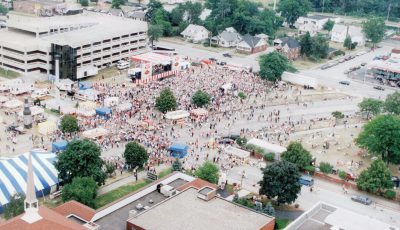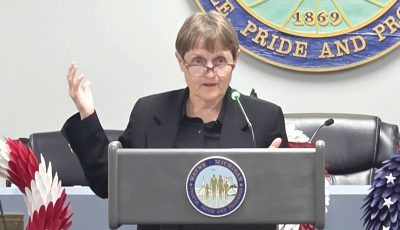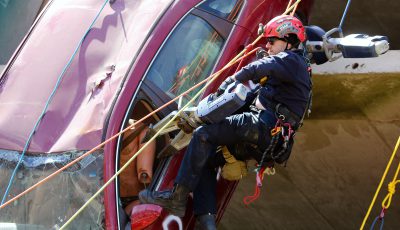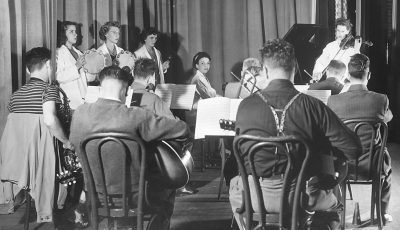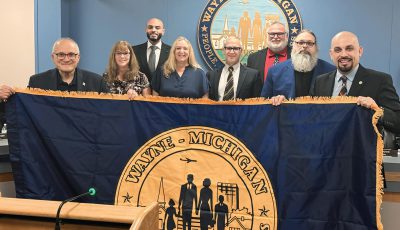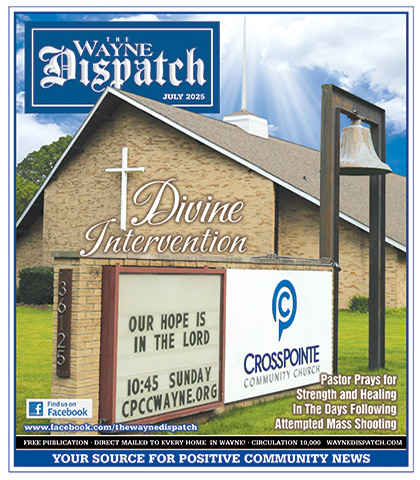With a historic strike in the rearview mirror, Dwayne Walker, president of UAW Local 900 here in Wayne, sets his sights on continuing union integrity and solidarity
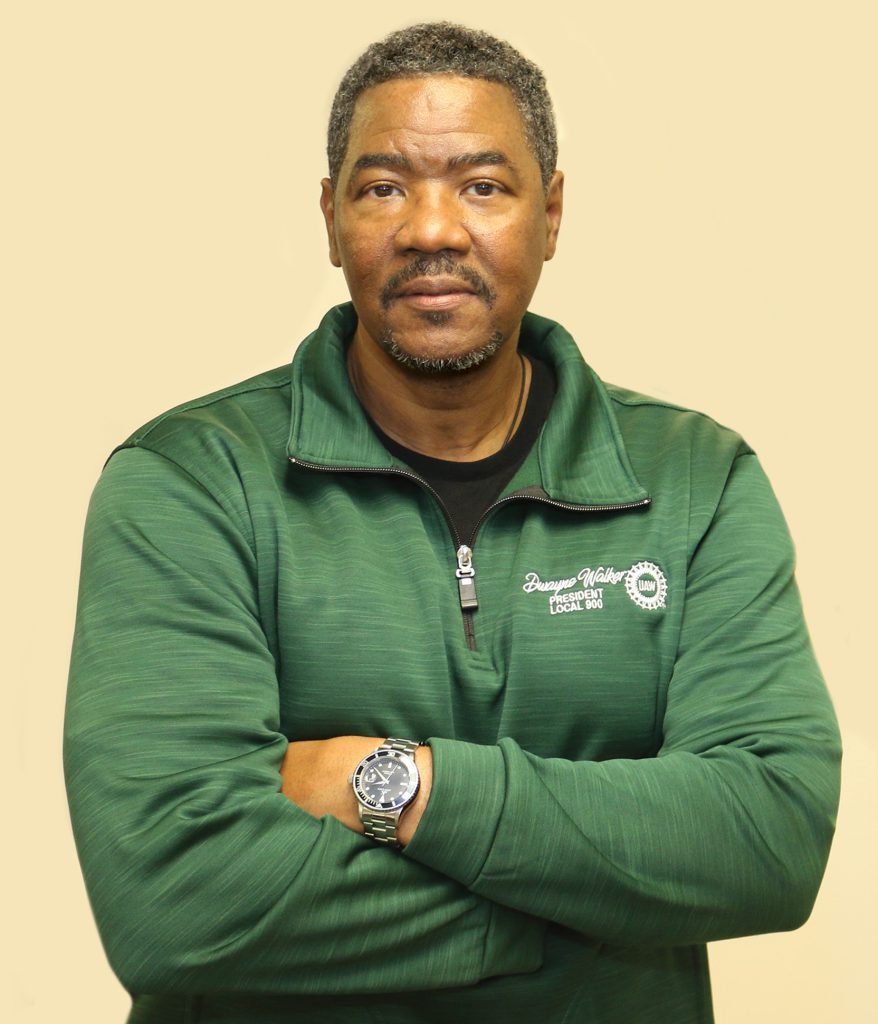
UAW Local 900 President Dwayne Walker
By Courtney Conover – Today, the long stretch of southbound Michigan Avenue near Newburgh Road looks as if nothing ever happened.
But we, the residents–those of us who call Wayne home–know differently.
For 46 long, arduous days, Ford’s Michigan Assembly Plant—and its employees who picketed outside of it—stood as an international symbol of what it looks like when a hankering for change becomes too strong to withstand.
According to CNN, the unprecedented strike by the United Auto Workers union against Ford, General Motors, and Stellantis was the longest American auto strike in 25 years. Furthermore, Anderson Economic Group (AEG) estimates that the total cost of the strike has topped $7.7 billion.
But, in the end, an agreement was made in late October.
Detroit Free Press reports that the gains in the deal are valued at more than four times the gains from the last UAW contract in 2019. A UAW news release details the agreement’s array of improvements, including a cumulative raise of the top wage by more than 30% to more than $40 an hour, a raise of more than 150% to the lowest-paid workers at Ford over the life of the agreement, and the reinstatement of major benefits lost during the Great Recession, such as cost-of-living allowances and a three-year wage progression.
“This is probably the best contract in our lifetime,” says UAW Local 900 President Dwayne Walker, 61. “The momentum is there.”
Walker, who was hired at Michigan Assembly Plant in 1990 and has since served as a national Ford delegate three times, currently represents over 8,000 local members. Local 900 is recognized as an amalgamated local, which means that it services automotive union members—both active and retired—as well as those who work in the fields of healthcare, cleaning services, and sorting.
In this month’s Dispatch, Walker, who served this country as a member of the US Marine Corps for 13 years, shares how his past experiences have converged to put him on his current path of UAW leader.
Courtney Conover: Can you give a brief synopsis of what happens after an agreement is reached between a union and an automotive company—following a strike?
Dwayne Walker: They call a tentative agreement, and then different locals have a ratification throughout the country—Chicago (which I’ll be returning to), Kansas City, Dearborn, Kentucky, etc. And we went first to set the tone. A lot of times, people will see which way we go because we’ve always had a highly experienced committee and a foundation. So, people around the country look to see what we’re doing—and, a lot of times, they pattern what we do.
CC: Tell me your immediate, knee-jerk thoughts on this new agreement.
DW: I think it’s very positive. I was actually part of the negotiation team and served as the secretary for Ford and got to see it up front, step by step. Personally speaking, I’m a middle child—and I never got everything I wanted. But, here, in this instance? I was satisfied.
CC: How did you come to work for Ford?
DW: My buddies and I had heard that the Big Three were hiring, so I went to the unemployment office on Eight Mile and Greenfield. They gave me a card and said, “Hey, do you know where Wayne [Michigan] is?” And I said, “No, I don’t, but I’ll find it.” I came out here, got started, and walked in and told them I was a veteran, which gave me preference.
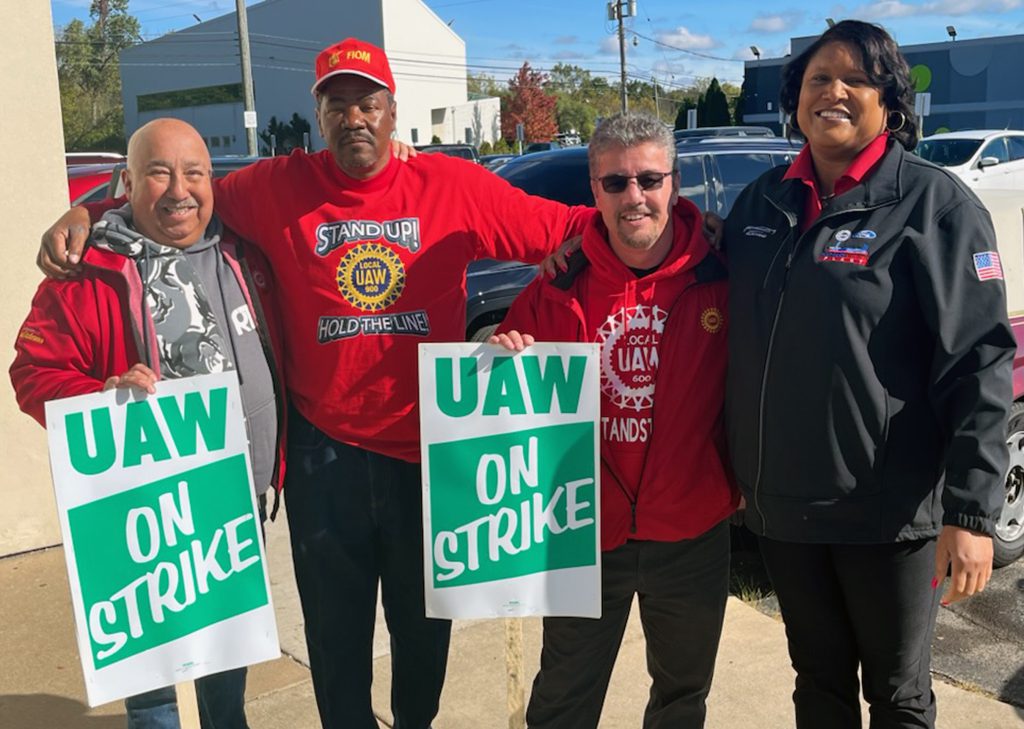
Bobby Ramirez, Dwayne Walker, Bob Stover and Laura Dickerson Region 1A Director at the Local 900 during the strike.
CC: And then, you became involved in the UAW’s Veterans Committee, which has accomplished exceptional things, including contributing to the building of Michigan’s first Fisher House, which provides high quality, temporary lodging to families and caregivers of veterans and active duty service members who are undergoing care at the VA Ann Arbor Healthcare System. How did you become involved with this committee?
DW: I started Ford on May 7, 1990, and then I went overseas December 5 to Desert Storm. Once I came back, the committee said, “Hey, would you like to get involved?” After returning home, I was just trying to transition and blend in. But they kept asking me, and then I thought, obviously you guys see something that I don’t. So, if you show me what to do, I’ll give it my all. And the rest is history.
Currently, we’re involved with Victory Gym, which is a gym Downriver that offers free memberships to first responders and veterans. That’s our cause now. But we haven’t forgotten about the Fisher House and still support them as well.
CC: You worked on the shop floor for six years, before choosing to enter the political arena with a run for district committee representative. What was the deciding factor in your decision to run?
DW: I think it stems from when you realize that there’s a need and that people are looking for help and guidance. I was willing to give my all and make a difference. It’s something my dad always told me: “Just get up every day and try to go make a difference.” And once you figure out you can make a difference in someone’s life, that motivated me because I was doing something that was beneficial to all of us.
CC: Following your nine years as district committee representative, you then took the position of bargaining representative from 2005 until 2017. How did your previous role as district committee representative prepare you for this next step?
DW: Well, it kind of laid the foundation. That was the learning part because I had no knowledge of what a district rep did or what transpired. But being on the night shift, you had to make decisions. And right, wrong, or indifferent, if that decision got me through—or held me over until a better one could be made, I was okay with that. That’s where you get all your learning.
CC: In 2011, you served as a national negotiator, which honestly sounds like kind of a big deal. What was that like?
DW: It’s kind of funny, they nominated me as an alternate. Then, at the last minute, the primary guy stepped aside when he got promoted. So, I kind of fell into it. But we [the negotiators] are the ones who actually make the resolutions from the floor, from the different locations. We’re the ones who sit down and bargain with the company. That’s what a negotiator does.
CC: I assume that hearing a lot of complaints comes with the territory, which requires tremendous people skills to handle it with tact. How did you learn not to internalize all the criticism and feedback?
DW: Growth and maturity. Because it’s not easy to do when you’re in your twenties. After a while, you learn that their concerns are how they feel. You have to always try to figure out, Okay, how do we get to where we need to be so that we both can move on? There were days when I’d walk through there [the plant], and it seemed like nothing could go right. But all it takes is one person to say [to a worker] that the job you’re doing is not going in vain. It’s like playing golf: You could be having a bad day, but you sink a putt on the last hole, and, hey, you’re coming back.
CC: How long have you served as the president of Local 900?
DW: Six years. I’m going into my third term.
CC: Where do you see Local 900 in the future?
DW: Well, we constantly want to make sure that Local 900 is recognizable and that we are partners with the community because we are the community. Additionally, we keep the other two past presidents around, so we retain that knowledge. And I told them, “You guys just pass me the torch, and I’m not going to drop it.” We’re going to improve and keep this legacy—this tradition that Local 900 has—going.
CC: And to top it all off, you and your wife of 21 years, Shawna, enjoy a blended family with four adult children, who are all in their twenties and thirties and prospering.
DW: My wife and I have done great service in the community—she’s a former school board member and myself as a former member of [Westland’s] Zoning Board. We enjoy each other’s company. And even small things like when I went to Chicago to ratify the contract, she came with me.
CC: As this year ends, where do you see yourself both personally, as well as professionally, in the new year?
DW: Personally, I’m in a good place. When you get to a certain point in life, you reach that comfort zone. And we’ve been through a lot, but we’ve accomplished a lot. We made it through a pandemic, we went on strike, which is something that hasn’t happened in forty years. So, most of us have never experienced that. But we came through with a good contract, which enables a decent standard of living. When they retire–just like the other retirees, they can retire with dignity and respect. We have done our job. The UAW’s mission is to uplift the standard of living and to take care of the community. And I feel like we’ve accomplished that. Going into 2024, I feel good.


